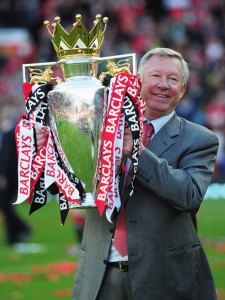
A few weeks ago I had a virtual chat with my mentor, a CEO of a software company in Silicon Valley. Our discussion focused on competing in a complex enterprise sales cycle. After describing the challenges I was facing, he reflected and asked a simple question: Are you playing soccer or lacrosse?
Interesting.
My exposure to lacrosse is limited to its appearance on ESPN SportsCenter: Top Ten Plays. It wasn’t a sport I went out of my way to watch. And if I were to, I’d have to learn the history, techniques, and rules of the game.
My mentor could see my thoughts drifting, so he rephrased the question:
Are you trying to get your customer to buy in the way you sell, or are you trying to get your customer to buy in the way your competitors sell? In other words, are you playing soccer, or are you playing lacrosse?
My mentor and I both share a passion for soccer, as we both grew up playing and watching it religiously. He knew the analogy would resonate.
The point he was making was although the customer may be intrigued by lacrosse, it didn’t mean they wanted to play it. It could be that my competitor introduced prospects to lacrosse because they got tired of losing at soccer. By playing along or trying to get the customer to buy in the way my competitors sell, I was expending valuable resources instead of investing in my soccer game. If I continued to go down this path, it’d be a severe case of self-deceit because it’s playing a game where the opponent sets all the rules, so I was bound to lose. I had to make a change.
After some deep self-reflection, I worked with my team to refine my approach and strategy. Here are some of the steps I’m taking:
- Dedicating additional time to deeply understand my customer’s business outcomes by scouring through financial statements, interviews, press releases, social media, investor decks, etc.
- Developing a point of view from the perspective of achieving each business outcome.
- Validating and refining that point of view by speaking with key stakeholders within my customer’s organization, from the executive to the executive assistant.
- Crowdsourcing feedback and the best ideas from experts within my organization to further refine the strategy.
- Applying critical thinking and asking tough questions to earn trust and mutual respect in every interaction.
- Proactively sharing ideas to solve business challenges even if there are no complete solutions to offer…yet.
These steps are netting positive results and rekindling the customer’s passion for soccer. The customer is fortifying their defense in preparation to mount a counter attack and score some business goals.
On a side note, Real Madrid, if you’re reading this, I’m patiently waiting for that invitation to try out or a free ticket 
Happy selling!
Stay #CustomerObsessed



